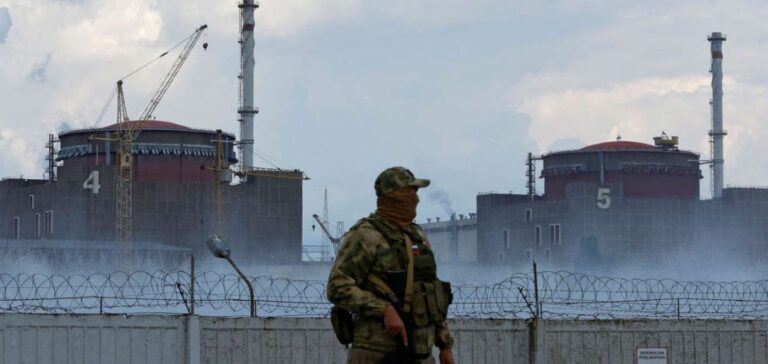The International Atomic Energy Agency (IAEA) regretted on Thursday that it had been unable to inspect the roofs of the Zaporijjia nuclear power plant, where Ukraine suspects Russian forces occupying the site of having planted mines or explosives.
Accusations of nuclear provocation: The IAEA seeks evidence on the ground
The UN body’s experts on site are “still waiting to gain access to the roofs of the reactor buildings”, said Director General Rafael Grossi in a statement.
In early July, Ukraine accused Moscow of preparing a “provocation”, with the army claiming that “objects similar to explosive devices had been placed” on the roofs of reactors 3 and 4. The Kremlin warned of a possible Ukrainian “subversive act” with “catastrophic consequences”.
Faced with these mutual accusations, the IAEA called for better access to “verify the facts on the ground”, in an “independent and objective” manner. Rafael Grossi then reported “progress”, as his team was able to visit the fuel cooling pools.
But the request concerning the suspect roofs has been on hold for almost two weeks now. Inspections carried out to date have not detected any “traces of mines or explosives”, adds the IAEA, citing a “volatile security context in this region on the front line of the conflict”. Fallen into the hands of the Russian army on March 4, 2022, Europe’s largest power plant has been shot at and cut off from the power grid on several occasions, a precarious situation that raises fears of a major nuclear accident.






















